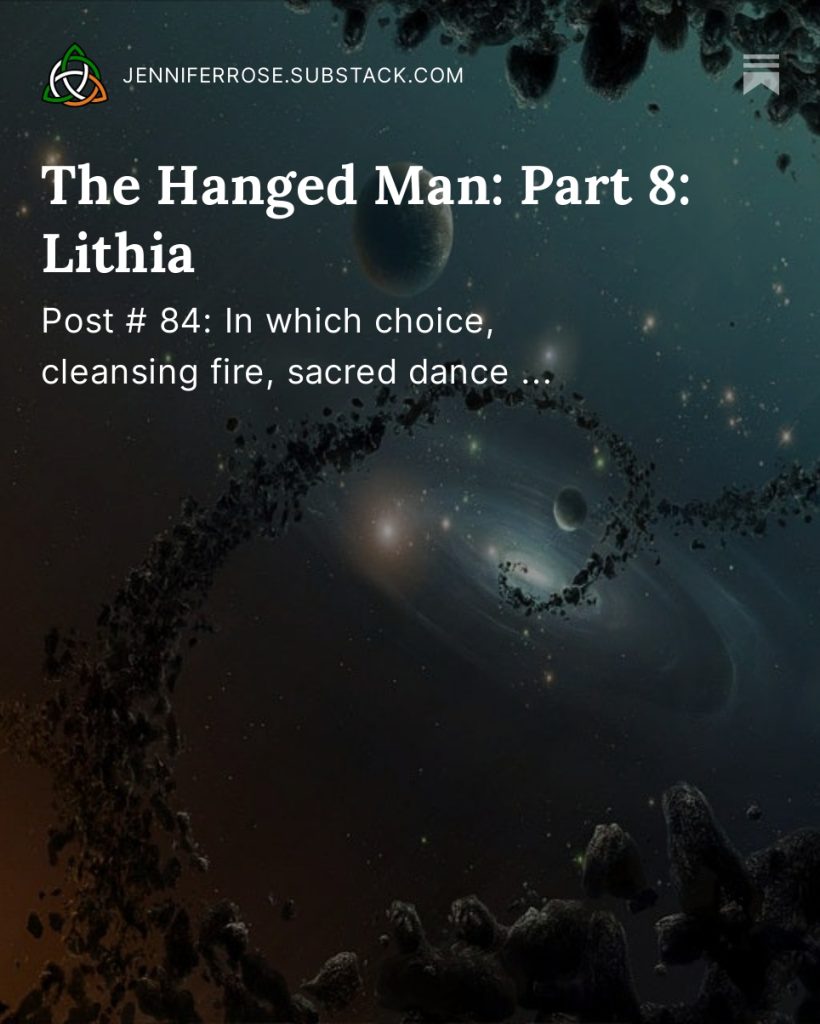by Jenny Rose | Nov 4, 2023 | Emotional Intelligence, Feelings, Love
Elizabeth Gilbert is on Substack, and I follow her. Best known for her breakout novel, Eat, Pray, Love, she’s a journalist, speaker, and writer. Her Substack is called Letters From Love and more than ten thousand subscribe.
Letters From Love is the most uncomfortable Substack I read. I write that statement with wry humor. The premise is writing love letters to oneself.

Photo by Angelina Litvin on Unsplash
When I first came across it, I was equally horrified and attracted. I poked around, reading here and there, and realized quickly Elizabeth and I share certain experiences. I already knew this, because years ago I came across her brilliant piece on tribal shaming, which I immediately blogged about.
It takes one to know one.
When I found Gilbert on Substack I subscribed, so her newsletter comes regularly into my Inbox. Sometimes I ignore it for days, but sooner or later I open it and read. She posts love letters she’s written to herself. Publicly! She also has a podcast, does interviews, and posts love letters others have written to themselves.
(Cringe.)
I can’t help but notice my violent reactions. Me being me, I don’t choose to turn away and read something more comfortable. I have questions. What is my deal? I’ve been working for more than ten years on self-care and self-love, on reparenting myself and healing old trauma. Why am I not delighted with the idea of a practice of writing love letters to myself?
(Shudder.)
My first reaction is to crawl through the screen and beg her not to expose herself like this. Beg them all not to expose themselves. Don’t they understand how dangerous it is? Haven’t they learned a display of this kind of vulnerability will attract destroyers with stones and blades and (worst of all), terrible, terrible words of contempt? Oh, and don’t forget lethal indifference.
(If you’re not paying attention, I’ve now told you everything you need to know about the way I grew up.)
Except clearly the sky is not falling. More than ten thousand people are reading Gilbert’s love letters, and she goes on writing and publishing. The discussions within her community are neither indifferent nor contemptuous. On the contrary, they’re supportive and tender.
Which leads me to conclude my red alert reaction is about me rather than the practice of writing love letters to oneself.
Hm.
How can they do this? I wondered.
Could I do this?
No, no, no, not to publish! I reassured myself hastily. Just for me. Like my journal. My eyes only. A delete key. No one ever needs to know.
But there was a problem. Elizabeth writes to herself with endearments. Creative, funny, quirky endearments, like “my glinting little piece of foil from a gum wrapper.”
OK, now that’s fun! Words are so much fun!
What kind of endearments would I address myself with?
I’ve had pet names for my kids and my animals. No one else, really. Certainly not myself. My tone with myself has mostly been the harsh, hectoring, contemptuous, cold voice I internalized from the adults around me as a child.
More discomfort.
But, words … If I had a child just like the child I was, what endearments would make her giggle and feel loved and seen?
So I started a list of whimsical endearments. A very private list. So don’t ask! I was a little ashamed of myself, but no one else need ever know …
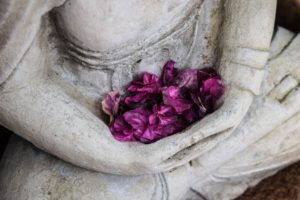
Photo by Chris Ensey on Unsplash
The list was fun, because it was a creative exercise. I can do creative exercise. It occurred to me part of my resistance to love letters (either giving or receiving) has to do with my disbelief in words. (Ironic.) Words can say anything. People say anything. The proof is in action. The older I get, the less interested I am in words, and the less I believe them. Demonstrate. Act. Show me, don’t tell me. As I’ve worked to heal I’ve developed routines for self-care, for eating well, for exercise, for sleep, for writing. I’ve been successful, and take much better care of myself than I ever have before. I take better care of myself than anyone ever has before, in fact.
But I haven’t written love letters to myself. I would have told you I could do so, if I wanted to. If I thought they’d have value. If I thought I’d believe them …
I grew up with emotional withholding. I’ve believed I’ve broken that pattern with my own children and my loved ones, including my animals. But now I wonder. Isn’t demonstration of love with no words a little sterile? I know the mixed message of loving words and abusive actions is devastating. Is active demonstration of love without words also confusing? Am I withholding from myself? Obligation, responsibility, duty – all these I’m very good at. But those are stony words. Where is the tenderness, the humor, the generosity? How about compassion? I feel those for others. I’ve spoken them from the heart; written love poems, love letters, notes, and cards – for others. Could I learn to feel and express them for myself?
Then I got sick with COVID, the events of the last couple of years (traumatic, protracted move; my mother’s decline and death) caught up with me, and I felt miserable. At once, I began putting pressure on myself to get back to writing, get back to work, get back to exercise, take out the trash, do the shopping, and generally pull myself together, because, after all, the world is full of bleeding, suffering people and I have a good life, a privileged life, and don’t deserve to feel sorry for myself and be lazy.
Not a love letter, in other words.
In the middle of the week during which I sat on the couch, alternately shivering and burning and blowing my nose, I wrote myself a love letter.
Well, maybe a let’s-see-if-I-can-tolerate-you letter.
It was an extremely strange experience. In fact, it made me cry, which didn’t help my congestion. Or my cough. At the time I had no sense of taste or smell, and I reflected that it was like that. When I tried to turn toward myself with love, tenderness, affection, whatever you want to call it, there was nothing. Just … nothing. A thick, numb shell between me and myself.
It made me so sad. Immediately upon the heels of that, I was ashamed. Because, you know, self-pity.
Almost as bad as self-love.
Wait now, what?
It’s bad to love yourself … if you don’t deserve it.
And, readers, I thought I’d left that belief far behind in the dust.
Then I began to feel angry, and I told myself I was going to start practicing writing love letters to myself. Because I deserved and deserve love as much as anyone else. I’m not important enough to be the most loathsome person in the world.
Questions:
- How does the idea of this practice make you feel? Can you write a love letter to yourself? With endearments and everything?
- If you could write a love letter to yourself, how would you feel about making it public?
- What do you most need to hear from someone who loves you? Would it have power if you wrote it to yourself?
Leave a comment below!
To read my fiction, serially published free every week, go here: 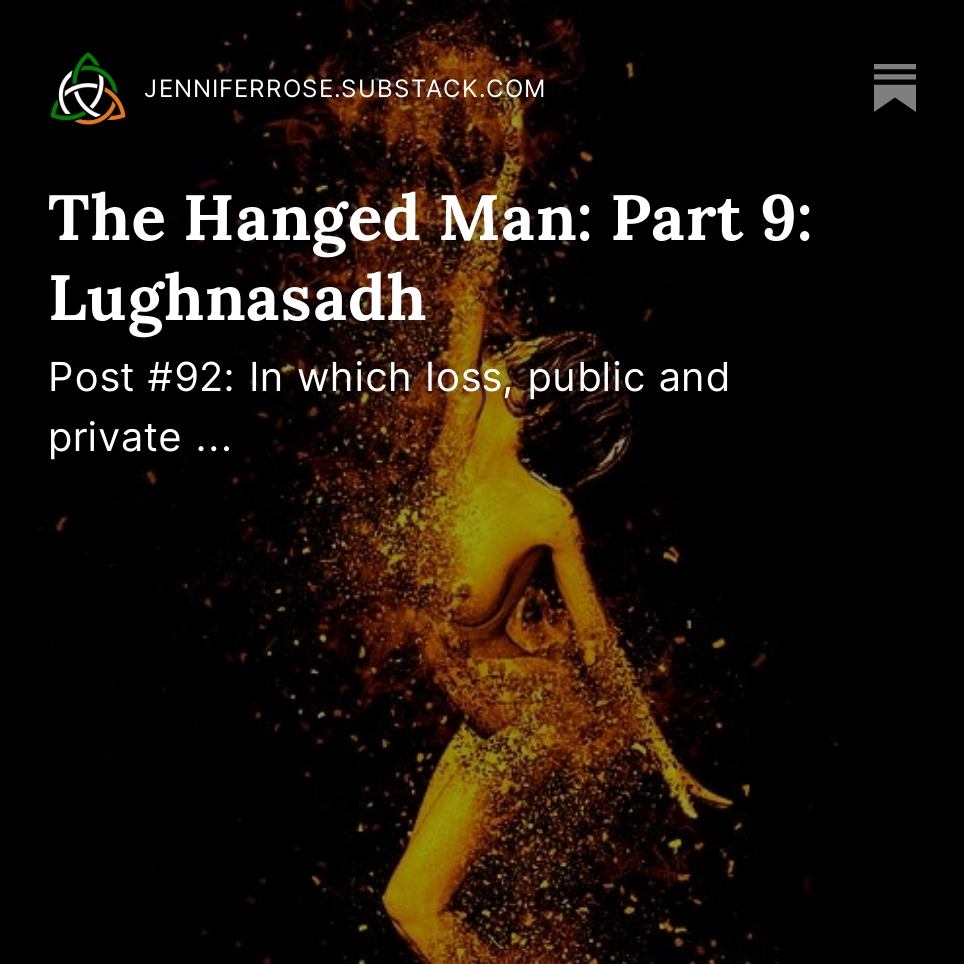
by Jenny Rose | Oct 21, 2023 | A Flourishing Woman, Body
I came down with COVID this week. It’s the first time I’ve had it, for which I’m thankful, as I’ve been diligent about vaccinations and I’m sure they are mitigating the virus. Three weeks ago I received the latest vaccination, in fact. (And no, I don’t think that’s why I got COVID!) 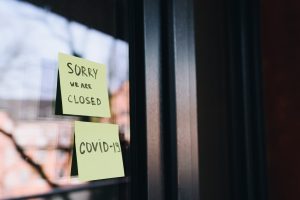
In our current world a positive COVID test is an iron-bound, all-purpose excuse for downing tools, stepping away, and spending some quiet time in solitude. So here I am, on the bench (or in my case, a comfy couch) instead of making my way through my usual work week and routines.
I haven’t been afraid of winding up in the hospital on a ventilator. I’m not especially high risk and in very good health. I’ve been resigned, more than anything else. Resigned that I unknowingly exposed my friends and coworkers before I knew what was happening. Resigned that this is a different viral experience than I’ve ever had before. Resigned that someone else taught my group swimming lessons and enjoyed the kids. Resigned to the fact that now we all have to mask for a time at work.
I’ve been miserable with fever, aches, congestion, and difficulty breathing. The physical symptoms are easing; however, I have entirely lost both taste and smell, perhaps the most distressing symptom of all, in part because it’s so different. Yesterday I ventured out for a walk.
It was breezy and grey with rain moving in, the air warm and soft. I took a short neighborhood walk, enjoying being outside and moving, but struggling with shortness of breath, disoriented by my inability to smell the rain coming and the crisping leaves. I feel cut off from my greatest source of solace, the natural world. I will continue to walk every day because my body needs it, but my joy in being outside is painfully diminished.
When I completed my test route, I felt too tired to do more. I came home and discovered I’d been gone less than 10 minutes.
At times like this I bless my passion for reading. I’ve had eye inflammation and itching with this virus; a symptom I’ve never had before. It worsens as my fever increases and makes looking at a screen or watching TV miserable, as well as sitting in any kind of sunlight. However, I can turn on a lamp and read until I doze, then wake and read some more. This passes the time, keeps me quiet, and distracts me from my present experience.
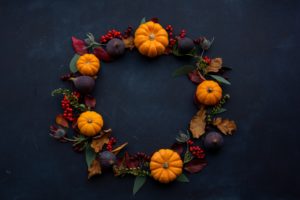
Photo by Joanna Kosinska on Unsplash
This morning I walked again in a light rain. It’s been a dull-colored fall here. Some leaves are finally starting to turn; other trees are mostly bare already. This time I was ready for scent blindness. I turned away from what I couldn’t do and feasted my eyes on the rich colors of fall-blooming flowers and the leaves. A humid breeze fanned my cheek. I focused on breathing, filling my weary lungs with the fresh, damp air, exhaling as well as I could through my nose. I paid attention to what I heard: crows squabbling, an occasional passing car, a barking dog, the subtle background sound of the rain. I walked a longer distance than yesterday.
I haven’t run a fever from more than 24 hours and my throat feels normal again. Progress, although my heart thumps uncomfortably when I’m up and doing things and I have the lingering feeling I’m not getting quite enough air. Still, symptoms are clearly abating.
Benches are not comfortable, for the most part. No back support. Hard under the ass. Sitting on the sidelines watching others live their lives when we can’t participate much in ours is discouraging. So much of my daily centering, comfort, and self-care are bound up with scent. I could not have anticipated how devastated I feel without the simple ability to smell and taste. My scented fall candles, usually a daily pleasure, sit unlit. Tea might as well be plain hot water. Food is absolutely tasteless. I can’t smell when the cat boxes need to be emptied. Cleaning doesn’t smell like cleaning. Fresh air doesn’t smell fresh. Taking a shower, using soap and lotion and putting on clean clothes, is joyless. Eating is a chore.
Yet still there is reading, and writing. I’m washing my sheets. I’ve aired out my room and waved a smudge stick around. I’ve washed the breakfast dishes. The cats are snuggled up with me in my chair. The rain comes down. Another cup of tea cools at my elbow. I picked up a scarlet leaf while I was out walking; an antidote to depression.
In spite of violence, pain, suffering, and illness, the world is beautiful. It welcomes us, shelters us, sustains us. Small pleasures and joys are everywhere, if we only engage with them. Refusing pleasure and peace does not help those who have none. Whatever our circumstance, we are all connected.
Questions:
- How would your life change if you couldn’t smell anything?
- If you had no ability to taste, how might it change your relationship to food?
- In these dark days of twisted politics and violence, what gives you hope?
- What is your favorite indulgence or ritual when you’re sick?
Leave a comment below!
To read my fiction, serially published free every week, go here: 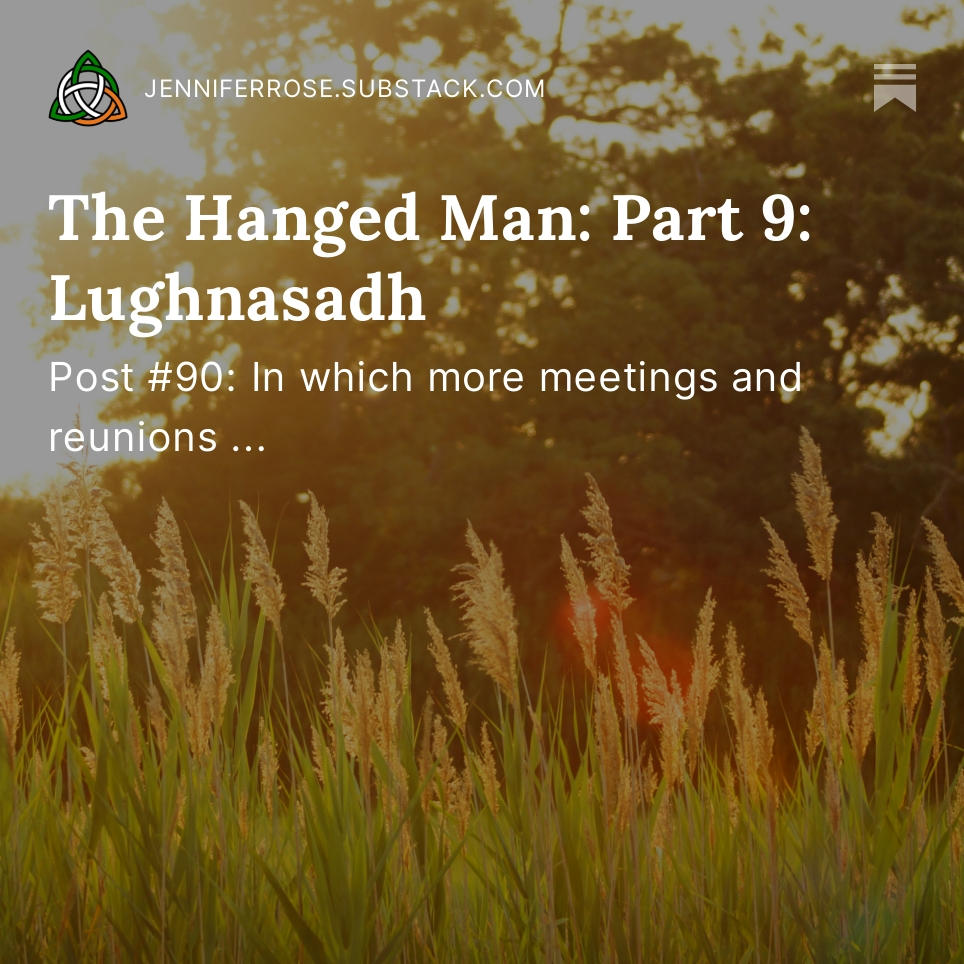
by Jenny Rose | Oct 7, 2023 | A Flourishing Woman, The Journey
This post grew out of two seeds. The first was a piece by a substacker I follow who heard a phrase on a podcast about pleasure in discipline. It struck her that she’s good at finding pleasure in discipline (think productivity), not so good at being disciplined about pleasure.
This struck me, too. I’m quite disciplined when it comes to achieving goals and being productive, but it never occurs to me to apply that same discipline to pleasure. What a thought! How lazy. How irresponsible …

By Veljo Milic on Unsplash
Amused at my internal horror, I played with this idea for a day or two. Discipline is like a doorway, I mused. One can walk through it and into pleasure. Being a strong adherent of Work Before Pleasure (even though I know the work never ends), the doorway metaphor seemed appropriate. For a minute. Until I realized standing in the doorway of discipline, unable to move forward into pleasure, is no good, either. And that’s mostly what I do.
Sigh.
Then, I did my Mabon Tarot spread. I do this at every turn of the wheel. Mabon is Fall Equinox. It came and went while I was wading through paperwork, documents, emails, insurance, retirement investments, and the business of changing banks, cards, automatic payments, and transfer networks.
Did I mention paperwork?
Anyway, I did eventually get to pulling cards about a week after Mabon. The last card of the spread, the “overall outcome” card, happened to be the 9 of Stones (my deck), or the 9 of Pentacles (classic deck). In my deck, this card is the card of tradition, signifying reverence for past wisdom and sacrifice, and ancestral memory.
It stopped me in my tracks. Ever since my mother died in August (hence the endless paperwork), I’ve been preoccupied with family, past and present, living and dead, known and (mostly) unknown. Managing my inheritance has been fraught with guilt, shame, anguished memories, bewildered pain.
I don’t feel reverence. Whatever I feel, it’s not that. (Another thing to feel guilty about.) Whatever happened in my past context of family, I’ve found no wisdom in it. Plenty of sacrifice, though, mostly of and by me.
In the five days since I turned this card over, I’ve been thinking about it. It’s the traditional time of year for many cultures to remember ancestors, the time when the veil between the worlds grows thin, the time when the trees release their leaves to decay and sleep before the next season of growth.
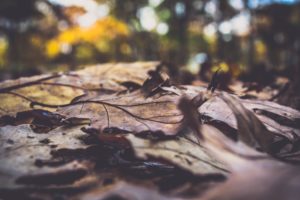
Photo by fancycrave on Unsplash
The discipline of pleasure. And the pleasure of discipline.
Reverence for past wisdom and sacrifice; ancestral memory.
I suddenly remembered an old story I used to tell during this time of year, “The Corpse Bride.” It’s a story out of Jewish tradition. A corpse bride, still wearing her wedding finery, mourns her violent death as she was on her way to her wedding. She grieves for her lost opportunities. A living bride comforts her, vowing to fully experience all that the corpse bride dreamed of and lost. The corpse bride is then able to lie back in her grave and rest in peace.
These pieces seemed to answer a question I haven’t consciously asked. Discipline. Pleasure. Unquiet ancestors. Lost opportunities.
How do we connect with our ancestors in a healthy way? We’re only just beginning to understand epigenetics and the ways in which we’re linked to the generations who came before us. I know something about my DNA, but almost nothing about ancestors. When I think of ancestors, I think of a dignified group of people, wise, healthy, connected, at peace. When I think of my family, I think of rejection, dysfunction, and abandonment. I hardly knew my family, even the ones living during my lifetime. What I mostly knew was I didn’t belong, though I was a biological child of the people I called Mom and Dad.
I feel no connection to ancestors. My unconscious assumption is they wouldn’t want me any more than the family I knew did.
However. The fact is I do have blood ties and a biological family tree, as we all do. I have inherited certain characteristics, behaviors, weaknesses, strengths, and wounds through epigenetics as well as genetics and environmental factors. I am now a twig at the end of a branch on the family tree. Neither of my sons have children. I have no daughter. My two cousins are also childless, as is my brother. I am the last female in the last generation of my direct maternal line.
Me. The highly sensitive, passionate, sensual, creative, noncompliant one nobody wanted!
I dealt several Tarot cards of healing and recovery in that Mabon spread. Perhaps they’re not solely about my healing. In conjunction with the season and this powerful card of ancestry, perhaps I have an opportunity to heal myself and comfort? give peace to? palliate? propitiate? the women who came before me, the women who gave me life.
Whatever came before, I’m here now. I breathe. My heart beats. Half the family resources are in my hands. I have the power to make choices. I choose to continue forward into generosity, healing, and joy. I don’t have ancestral traditions or maps. No one ever gave me a map, because they didn’t know the way themselves. Maybe they didn’t want to go in that direction; maybe they stopped looking for the path. It doesn’t matter now.
What matters now is to live … because they can’t. Like the corpse bride, their earthly opportunities are lost. Maybe from the very beginning I was the one with the potential to bring my female ancestors peace at last, not because I complied with their oppression, but because I refused it. Maybe it’s my wisdom that’s needed, the map in my pocket we all must follow.
The women of my family taught me some of the pleasures of discipline. Perhaps I must teach them about the discipline of pleasure, of joy. Which means I must learn it myself first.
I swam yesterday. I’m required to train weekly for my lifeguard position, but that’s only a good excuse. I swim for pure pleasure. I relished every sensual detail, every rhythmic breath, every stretch and flex of my muscles, the silk of the water. I relished the hot shower afterwards, the long drink of water I took, my clean hair and warm and relaxed body. Because they never did, even when alive. Because they never can.
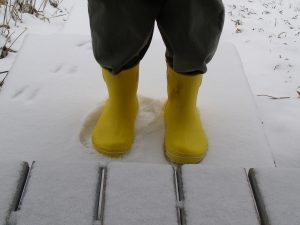
Yellow Boots
This Saturday morning I ran to the store. I took a deep lungful of the grey, humid air, heavy with the promise of coming rain. I savored it. I chatted with the cashier. I bought myself a luxurious dark chocolate bar. I deliberately splashed through a puddle in the parking lot with my bright yellow duckie boots. I smiled at strangers. I drove home with the window open and the damp air stirring my hair. Because they never did these things. (Well, maybe the chocolate. Mom did like chocolate.) Because now they never can.
I sit here on my couch with the cats, the laptop on my lap. I’m burning a scented candle, surrounded by a couple of sleeveless summer shirts I just bought on sale, my journal, lists, notes, the mail. I’m at peace. I don’t have pain. (Mom always had pain.) I’m content. I have friends I love and who love me. Life is good, filled with projects and plans. In a few minutes I’ll get up, put some laundry in, wash the dishes, stand in the doorway and look at the sky, feel the air stirring as the storm approaches. I won’t do these things because I’m disciplined and productive, or because I must, but because I can. I want to. I choose to. These are the small tasks of my life, and I love my life.
All these I’ll do for myself, and also for them, my ancestors, the women who came before me, my blood, my bone, the wombs who gave me life. Because they can’t.
They’re gone. (May they rest in peace.)
But I’m still here.
Questions:
- What does the word ‘ancestor’ mean to you? Do you connect it with a real person in your life?
- Are you prepared to be an ancestor? What wisdom would you pass on to younger generations?
- Do you feel connected to the generations of family before you?
- Would you like to be more deeply connected to living family members? What’s in your way?
Leave a comment below!
To read my fiction, serially published free every week, go here: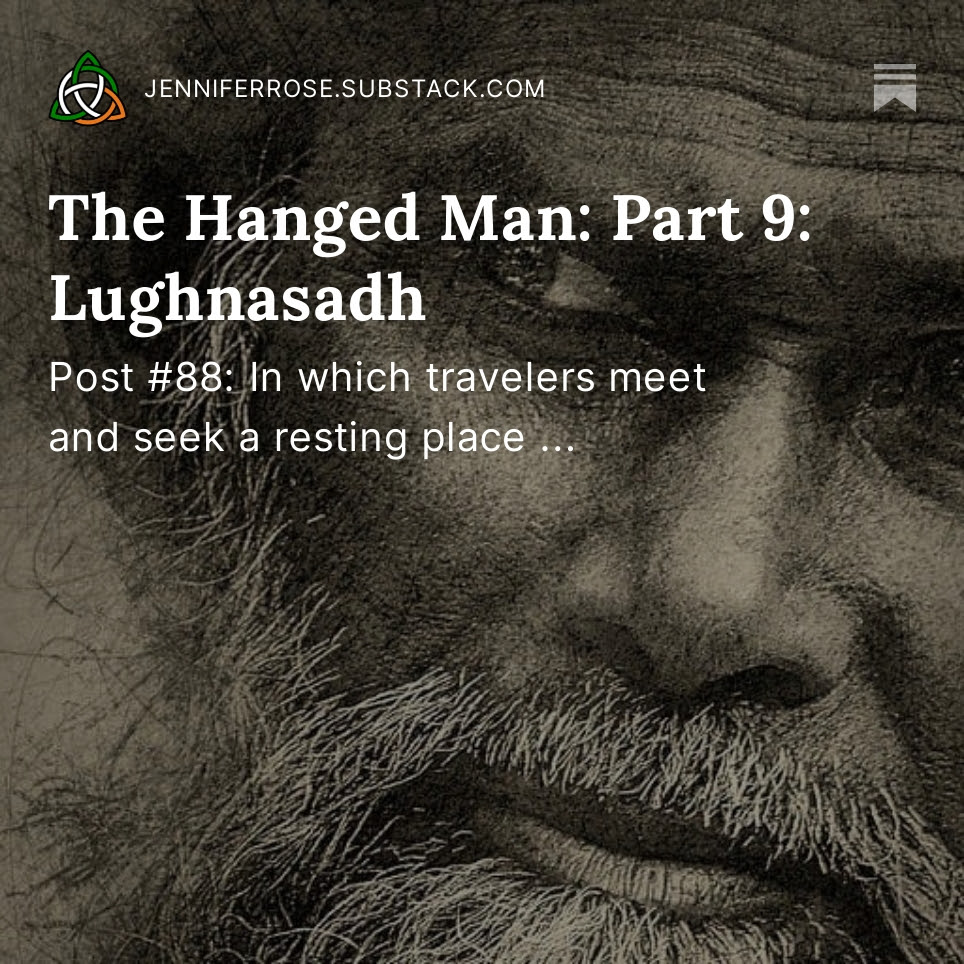
by Jenny Rose | Sep 23, 2023 | A Flourishing Woman, The Journey
Today is Mabon. My calendar informs me it’s my weekend to post on Harvesting Stones. Some weeks I’m all ready to go and need do nothing more than push the publish button. This week these are the first words I’ve written, sitting here on my little porch on Saturday morning watching the clouds tatter before the morning sun.
Mabon, or fall equinox, is the balance point during which the hours of daylight and darkness are equal. It mirrors spring equinox and falls between winter and summer solstice. Fall is my favorite time of year, and this fall I’m in the midst of profound transformation. It’s a harvest season like no other in my life.
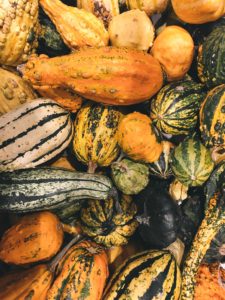
Photo by Brigitte Tohm on Unsplash
Sometimes we are so swept up in the tides of life and death we can do nothing but keep breathing. Days fall away from me, hours drift by and disappear without my awareness. I am focused on the next task, and the next. At the end of each day, I cross to-dos, questions, concerns off my lists, make notes for the next days and weeks, and fall into bed before rising at 4:30 or 5:00 to begin again.
In the midst of the chaos, I remember I choose my life. I’m getting better at just stopping.
Stopping.
I have before me a weekend. Mabon, 2023. It will never come again. A hundred tasks to do. A hundred things to worry about. A hundred choices to make.
Mabon is about balance. Action balanced with rest. Complexity balanced with simplicity. Fear balanced with confidence. Work balanced with play. Grief balanced with joy.
The light; the growing season; the summer of hospice, anguished love, extra caregivers, demented phone calls, medication lists, and, finally, my mother’s death, wane. Trees retain their leaves, but summer’s fierce green fades, bronzing, drying. Sedum and chrysanthemums bloom in the garden. A few sunflowers still flower among the ripening seed heads of their fellows.
Mabon. Balance. And I, a creature, a life among so many other lives, what can I say about it? How can I talk about balance when it feels so far from reach? How will I find balance again on the other side of transformation?
What I hold are impressions, vivid moments of mindfulness and sensuality, unexpected emotions, and the determination to cling fast to myself as autumn rip tides carry me where they will. For I am here, alive, curious, creative, awed, grateful, terrified.
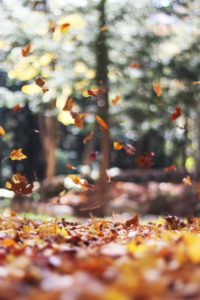
Photo by Autumn Mott on Unsplash
I’m rereading Susan Fletcher, a favorite author. I just finished Oystercatchers. On the last page, this: “You’re this: an onion bulb. The glint of a rabbit’s eye. The clicking of a beetle’s legs on a leaf; the leaf’s brown edge; dandelions; a pebble; windfall fruit.”
I read no more; I was crying too hard.
My mother is always with me. She has always been with me. My blood, my bone, my sculptor. Now, her death is with me, too, and her dying. Grief has not come to the front door, which I’ve left ajar in anticipation of its coming. It’s crawled through cracked windows, slipped through old screens long-dead cats tore with their claws. It’s drifted down the chimney, come up through gaps in my old wood floor from the cellar, crept along the copper radiator pipes, cool now, but soon to be warming.
I carry bewildered pain within me, like a ripe nut in its shell. How does it happen that a human being, intelligent, talented, competent, with so much to give, can have no feel for life? How can anyone refuse to engage with the mystery, the glory, the terror, the sweetness, and yes, even the pain of what it means to be alive, to love, to be broken and heal over and over?
Isn’t it strange that I find her in the small delights she herself would never have recognized as sustenance, as miracles? Something in Mom was too blind or too broken or perhaps too frightened to allow life to clasp her in its arms. Something. We could never talk about it. I knew it was there, but she would not reveal even the edges of her true experience.
In the end, as the fogs of dementia surrounded her, she was at last able to say she loved me. I have that, at least. And yet, she was demented … But I choose to believe.
Mabon, then, is the autumn garden. Planting blue and white grape hyacinths in drifts with daffodils under the magnolia so in spring they will bloom and naturalize as the seasons come and go. Shoveling and spreading compost mixed with aged cow manure, rich with earthworms and beetles. Pruning, trimming, prying weeds and grass out of cracks in the sidewalk and driveway. Disturbing our small brown toads as I weed and clean up debris in readiness for the blanketing fallen leaves. Dividing and transplanting. Spider webs jeweled with dew. Chilly mornings and gorgeous afternoons. The smell of my catnip, ecstatically trampled and chewed, no doubt discovered by the neighborhood black cat, Winston by name. Planting a few end-of-season sale perennials from our local greenhouse: lavender, black-eyed Susan, sedum. My garden manicure of dirt ground under my fingernails and into my cuticles, always dry and ragged from so much time in the pool. It won’t scrub away, but it will soak off in the pool during my next lesson. Peeling skin and blisters. Bruised knees.

Photo by Dakota Roos on Unsplash
Mabon is the early morning mist rising from the Kennebec River three or four blocks away. It moves up from the surface of the water, along the dark, early-dawn streets and walkways, enveloping the trees, rising to hide the church spire and then gently dissolving as the sun rises while the crows call and the neighborhood rooster announces the dawn.
Mabon is the taste of Apple Pie Chai (Republic of Tea) with a dollop of half n’ half in it, as delicious as it sounds. It’s scented candles burning in the first hours of my day as I journal, make lists, think about the day ahead. Orange, red, and golden candles – orange and spice, apple and cinnamon, sandalwood. One of my closest friends says sandalwood is a “dirty hippy smell.” The thought makes me smile every time I light it. The apples and cinnamon candle sputters companionably because it has a wooden wick (Book&Reverie candles on Etsy).
Mabon is linen sheets dyed a glorious old gold on my bed, textured, heavy, luxurious. It’s socks and sneakers instead of my Keen sandals. It’s my heavy grey shirt jacket with a Buff bandana or a scarf.
Mabon. The Wheel of the Year turns. Seasons and cycles. These things remain. These things are predictable, comforting. They sustain me.
This year, Mabon is also a blizzard of what feels like endless documents, digital, paper, filed away, stacked on my desk, put into binders, stored on USB sticks. Soon, Mom’s house in Colorado will sell, the requisite paperwork will be filed for tax preparers and other legalities. Printing and scanning, FedEx drop offs, notarizing, will eventually be complete. The business of opening accounts with a new bank, obtaining new cards and checks, changing automatic payments and direct deposits, connecting to other accounts, will be finished. Insurance, retirement accounts, paying off debt – all will be managed. I will create new systems, effective and simple.
This week my nearly 20-year-old Subaru failed to pass inspection. I can’t understand it. The driver’s side door handle still works; I don’t really need the others. It drives. I don’t need AC or an audio system. I can manage without being able to open the back hatch. The heat and defrost work if I put in the fuse, and the battery is good as long as I don’t leave the fuse in when I park it. I know exactly where to bring my fist down on the hood when an ice storm seals it shut and I need to open it and put the fuse back in.
It needs $3000 of work. It’s worth $1100.
I need a new car. More tasks. More paperwork. Insurance. Registration.

Photo by Nathan Dumlao on Unsplash
These things, the documents, the tasks, the paperwork, phone calls, texts, emails, are nothing but the chrysalis of transformation. I know it. I feel stressed and overwhelmed much of the time, frustrated by delays, miscommunications, jumping through legal and bureaucratic hoops. It’s all temporary, though. It will fall away, along with the autumn leaves. The chrysalis will shred in the dark winds of late autumn and winter, this rip tide will release me, and then … something new.
Through it all is my mother. My memories of her. The pain of my love for her. I’ve inherited so much more from her than assets. There is some comfort, some strange, painful comfort, in remembering to pause. To choose. To stop. To be touched, broken open by the small daily beauties and comforts of life. The taste of creamy tea. The scent of sandalwood. The texture of rich soil. The late copper and garnet blooms of mums. The mist rising into the sun’s golden warmth. Most of all, the painful risk of loving friends, family, the world, life.
Look, Mom. See the little toad? Let’s put him here, under the rhododendron. Remind me to buy toad houses.
To read my fiction, serially published free every week, go here: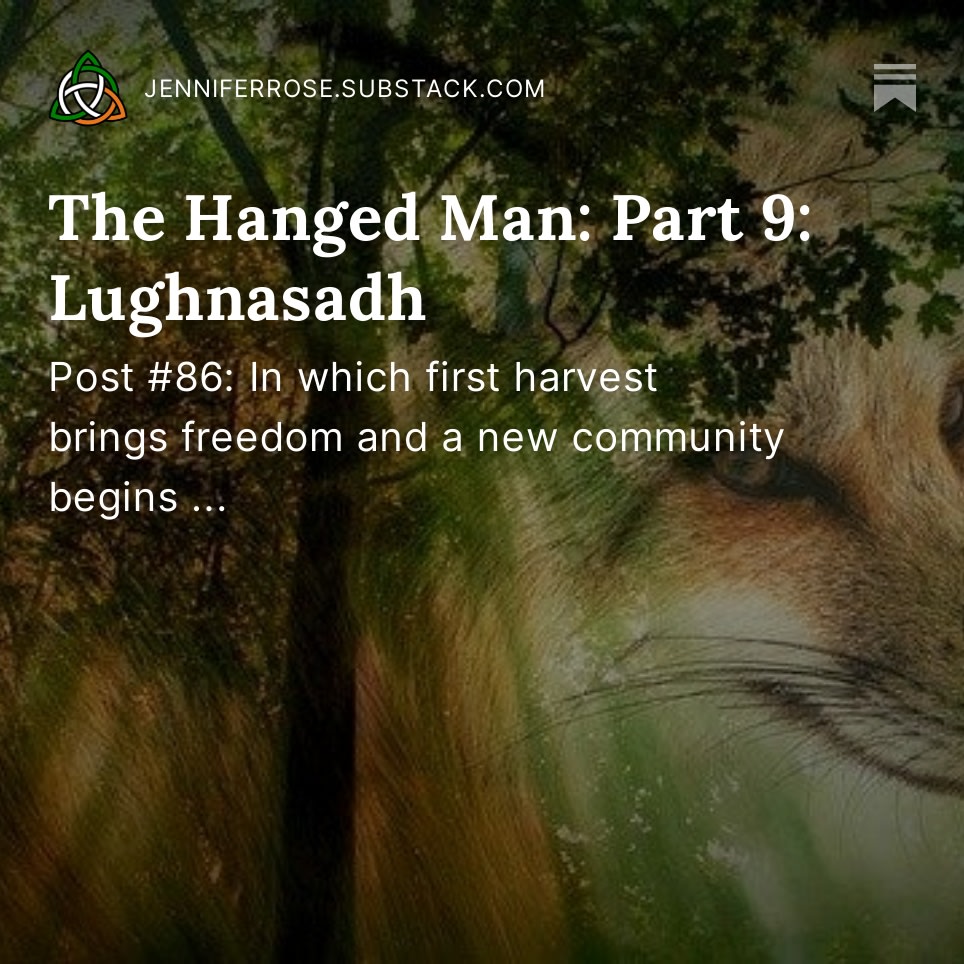
by Jenny Rose | Sep 9, 2023 | Choice, Power
I’m a spinner, a speeder, a thought racer. (Yes, I know it doesn’t help. I know rocking chairs and hamster wheels go nowhere. I know worrying is pointless.) Under the right conditions, the inside of my brain is like a dusty attic filled with hysterical cats zooming in all directions, climbing the walls, knocking over piles of junk, filling the air with dust and yowls. Chaos. Destruction. I call it speeding. I call it anxiety. The world calls it racing thoughts.
Whatever we call it, it’s a miserable state of mind, and a common one.

Photo by Quino Al on Unsplash
Herding cats, as any cat lover will tell you, never works. Sheep, maybe. Cows. But not cats.
However, at times familiar life goes off the rails in such varied, complex, and unforeseen ways I find myself once again herding cats, usually during the hours I need to be sleeping, though sometimes those hours bleed over into days when I’m supposed to be focusing. On something productive or something relaxing or something. But all I’ve got are catapulting (pun intended) thoughts and emotions racing around in my brain.
Not long ago, before the start of my current cat rodeo, I read somewhere (probably Substack) about The Rule of 9s. I’ve since gone back to look for it, but I can’t find the original source. Anyway, I didn’t come up with it myself. I wish I had.
The Rule of 9s is a tool used to identify what really matters. Or, if you like to look at things bass-ackwards, like me, what really doesn’t matter.
This morning, for example. I could garden, work on business at my desk, write, or make a Spotify playlist. I have just under two hours at my disposal before I head off to work.
I have a lot of desk business just now as my brother and I (mostly my brother) wind up my recently deceased mother’s estate and deal with our inheritance. By inheritance, I mean not just assets, but the inevitable emotional inheritance we all receive from our families of origin. What I’ve heard is true. When a parent dies, we cannot be prepared for the ways it changes us and how uncomfortable some of that change is.
My metaphorical cats – these mixed up thoughts and feelings — pull me in different directions at the same time. Everything feels overwhelming right now. It’s irritating. Two items on my grocery list and I’m overwhelmed. Now and then I have a few minutes free from the inundation, but I get a call, a text, another document to sign, and I’m overwhelmed again.
Fortunately, I just learned The Rule of 9s.
So, the option of gardening. It’s hot outside. Really, really hot and humid. Just when the weather should be getting crisper and cooler, a heat wave has arrived. It will ease in the next couple of days, but it’s brought a resurgence of mosquitoes and it’s not fun to be outside. So, no garden this morning. I’ll wait for cooler weather. Is that a crisis?
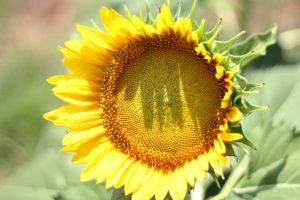
Photo by Morgan Sessions on Unsplash
Will gardening or not gardening matter in 9 seconds? In 9 minutes? In 9 hours? In 9 days? In 9 months? It might start to matter then, because I’ll be making spring plans and whatever progress I make this fall will affect those plans. But it’s clearly not urgent. I won’t remember choosing or not choosing gardening today.
Business at my desk. I’ve already done some of that this morning. Balanced the checkbook. Looked for a document I’m waiting on from my bank (not there yet). Made some notes. Did some planning. Considered options. I have money in my account. All the bills are paid. I don’t need to spend anything today. Will taking care of more business or not taking care of more business matter in 9 seconds? Nine minutes? Nine hours? Nine days? It might start to matter at that point, as one thing leads to another as we wade through this process. If I stay on top of tasks, step by step, I know I’ll eventually come out of the tunnel with effective systems in place that work for me and respect my goals and values. Tempting to start herding the cats quivering on my desk, but I only have two hours and nothing is urgent.
Make a Spotify playlist. I may shortly have an opportunity to bring a dance program to the community. I’ve tried several times in years past without success, but I haven’t given up hope. Now that I’m on Spotify (though I have misgivings about how platforms like this fail to support artists), I wanted to get a few of my dance playlists put together. I have them burned onto CDs and in iTunes, but not on Spotify. However, I don’t have any solid dates for dance now. It’s all in the planning stages. At some point it will matter, but not right now.
Writing. It’s my weekend to publish on Harvesting Stones. I don’t have to. It’s not required. But I’d like to, if for no other reason than it’s my usual routine, a stepping stone in the current chaos, and it comforts me to be doing something normal. Not to mention how much I enjoy it. Hard to think about focusing on it, though. All those cats whizzing around …
Will writing or not writing matter in 9 seconds? Nine minutes? Nine hours? Nine days? It won’t matter to the world, but it matters to me. It will matter to me in two days, when Saturday morning comes and I either do or do not have a rough draft I’m happy with.
So I’m writing. And while I’m doing that, miraculously, the other cats settle down. Tired, I guess. Maybe they’ll curl up in the chaos they’ve wrought and sleep a while. Sleep is good.
As I live my life and listen to the inside of my head, especially the anxiety, the fear, the resistance, the catastrophizing, I pull out The Rule of 9s and apply it. Will this matter in 9 seconds? In other words, will I die in 9 seconds if I don’t do whatever-it-is or figure it out, completely and perfectly? How about in 9 hours? (Have you ever noticed how crazy your nighttime I-can’t-sleep thoughts are in the light of day?) In 9 days will I even remember whatever feels stressful this minute? Will the fearful thing I can imagine happening be important in 9 weeks? In 9 months? In 9 years?
The Rule of 9s requires I slow down and think. The questions give me perspective, help me with a reality check. I stop reacting and remember my power to choose. I decide what’s more important than my peace of mind (not much). Hysteria is contagious; so is calm.

Photo by Ryan Moreno on Unsplash
Applying The Rule of 9s settles the cats right down. One or two may still zoom, because cats are contrary like that, but the chaos diminishes as I become intentional and mindful. I can find some focus, at least for a few minutes. I know what to do next, in the next 9 seconds, anyway. The next 9 years can take care of themselves.
Questions:
- What are your strategies for pulling yourself out of racing thoughts and anxiety loops?
- How do you choose priorities?
- Is your experience one of choice in life, or one of reaction and compulsion?
- Share something ridiculous that’s kept you up at night.
Leave a comment below!
To read my fiction, serially published free every week, go here: 